Find Help
More Items From Ergsy search
-
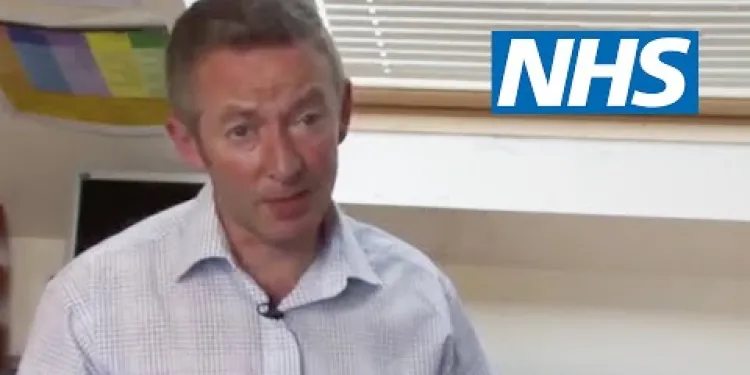
Early onset dementia | NHS
Relevance: 100%
-
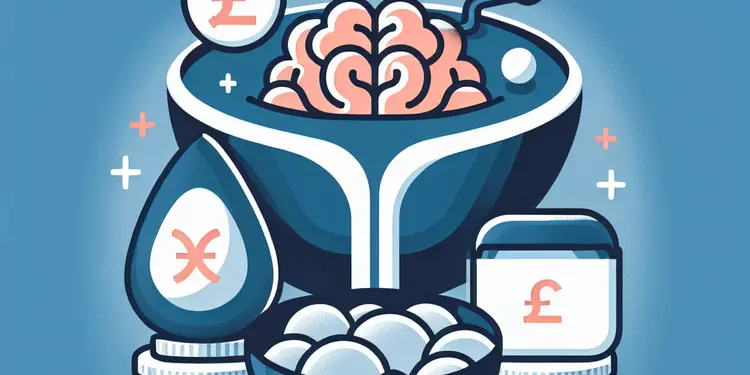
Is the age of menopause onset related to dementia risk?
Relevance: 69%
-
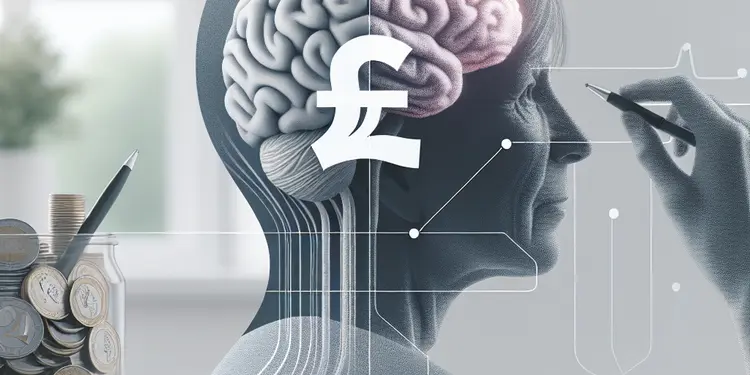
What symptoms can overlap between menopause and the early stages of dementia?
Relevance: 49%
-
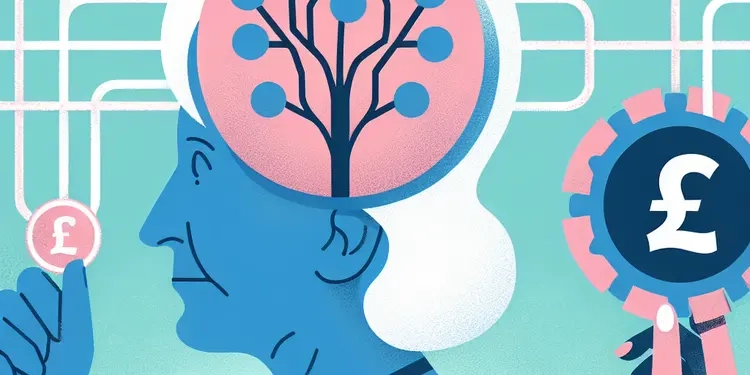
What are the links between menopause and dementia?
Relevance: 42%
-
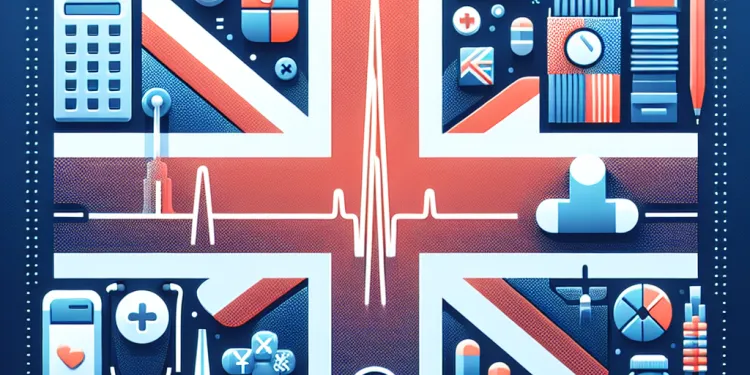
Is there a cure for dementia?
Relevance: 41%
-
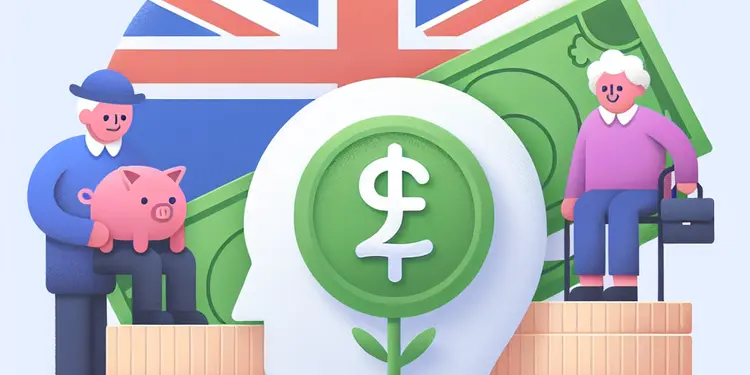
What is dementia?
Relevance: 40%
-
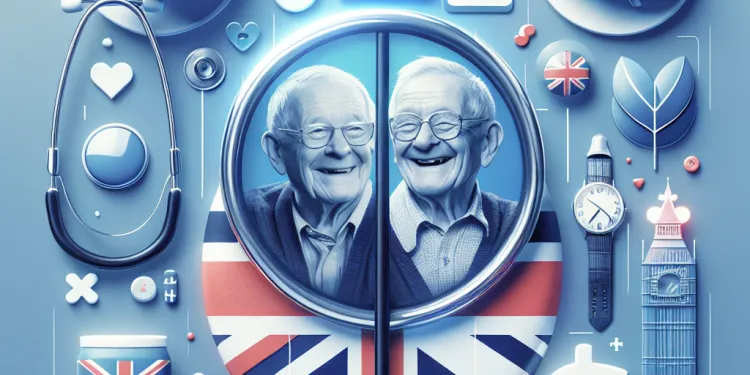
How is dementia diagnosed?
Relevance: 39%
-
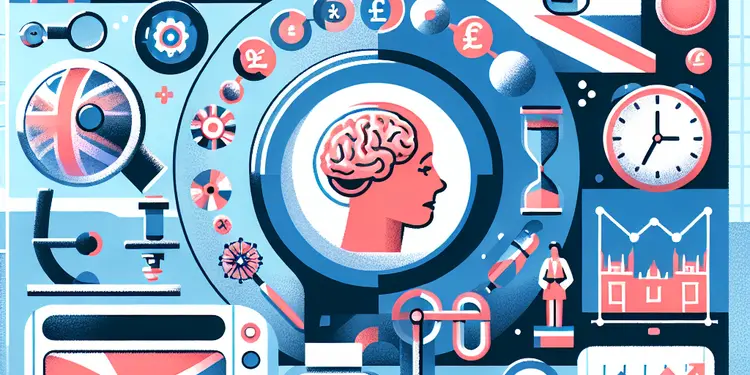
Is there scientific evidence linking menopause to dementia?
Relevance: 39%
-
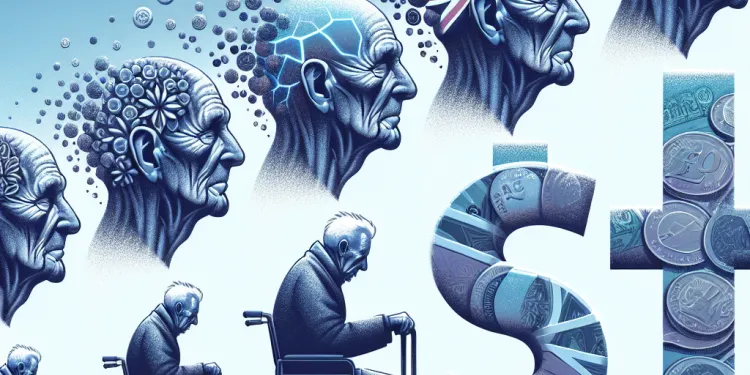
How does dementia progress over time?
Relevance: 38%
-
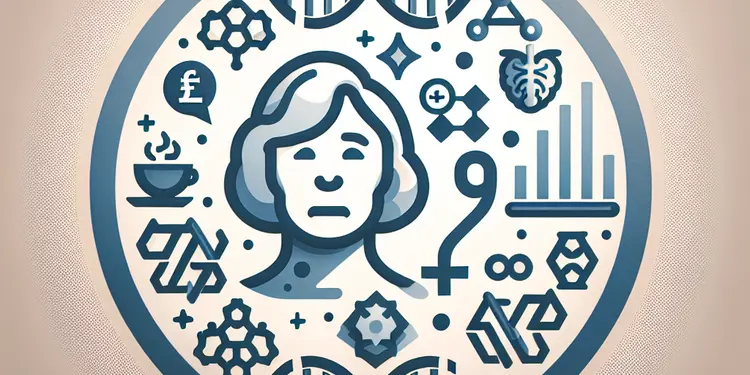
Do genetics play a role in dementia risk post-menopause?
Relevance: 38%
-
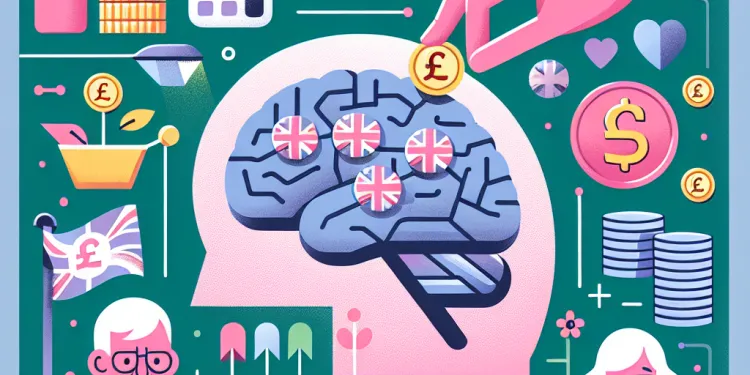
Can dementia affect younger people?
Relevance: 37%
-
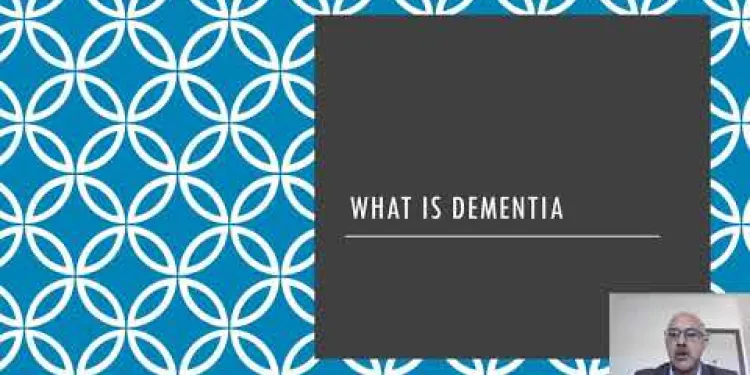
Dementia by Dr Alex Kakoullis, Coventry and Warwickshire Partnership NHS Trust
Relevance: 36%
-
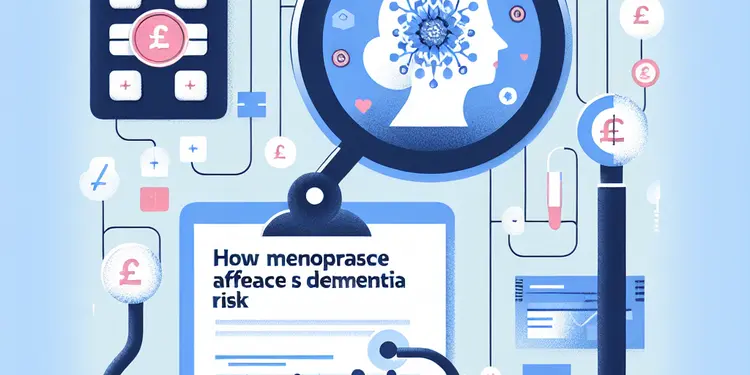
How does menopause potentially affect dementia risk?
Relevance: 35%
-
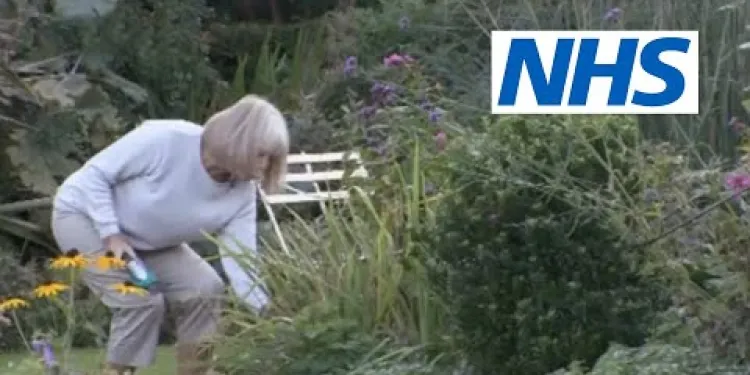
Living with dementia | NHS
Relevance: 35%
-
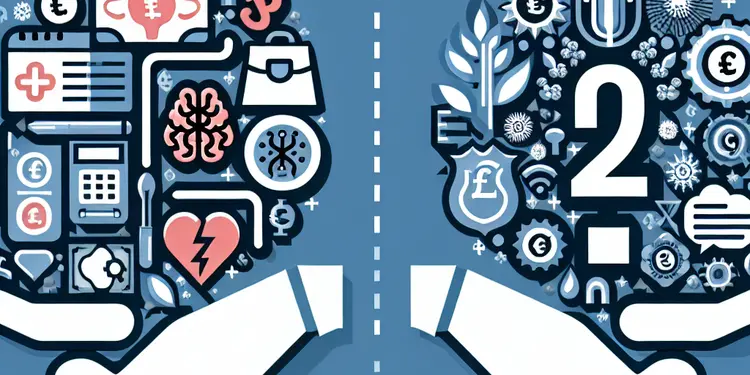
Are there specific types of dementia linked to menopause?
Relevance: 35%
-
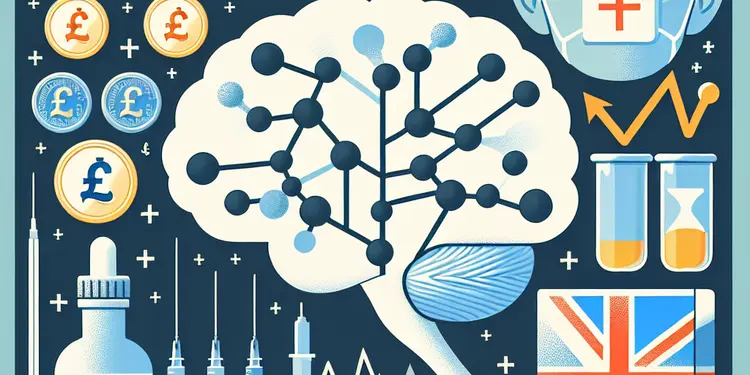
Can hormone replacement therapy (HRT) impact dementia risk?
Relevance: 34%
-
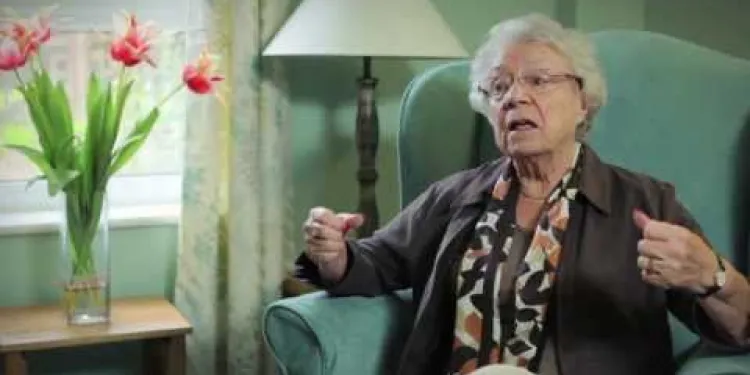
Dementia Care at Colten Care
Relevance: 33%
-
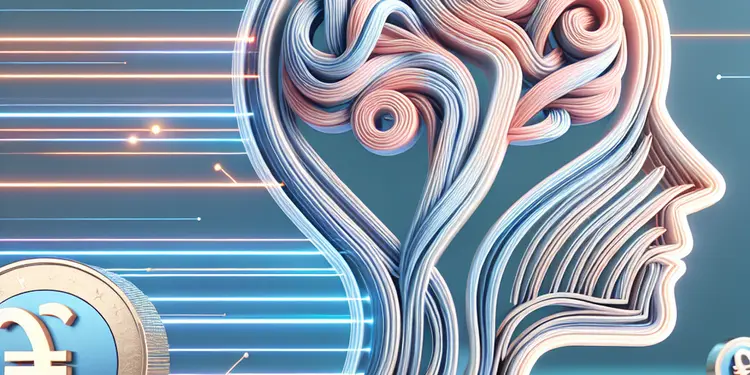
How common is it for women to develop dementia after menopause?
Relevance: 33%
-
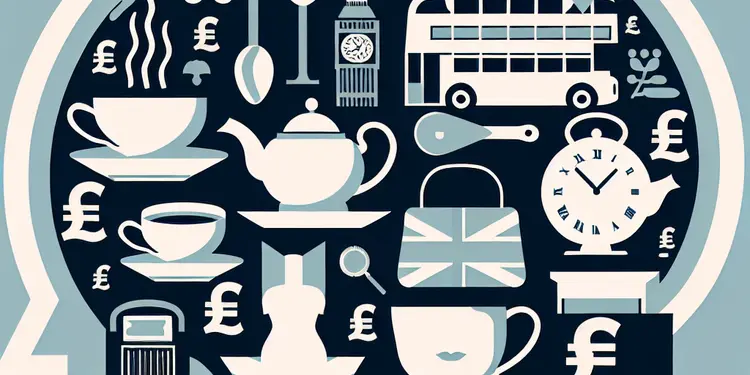
What further research is needed about menopause and dementia?
Relevance: 33%
-
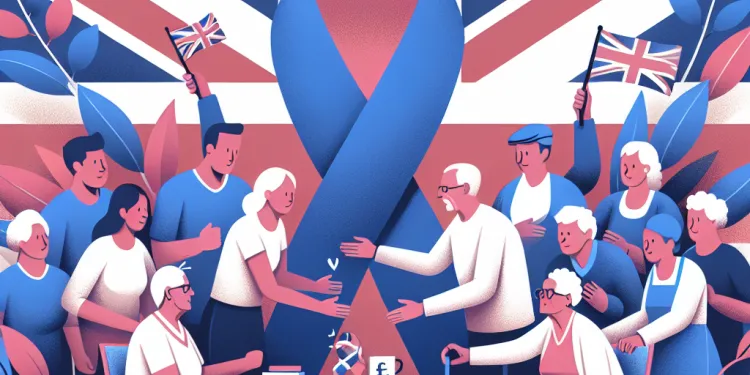
Are there any support groups for people with dementia in the UK?
Relevance: 33%
-
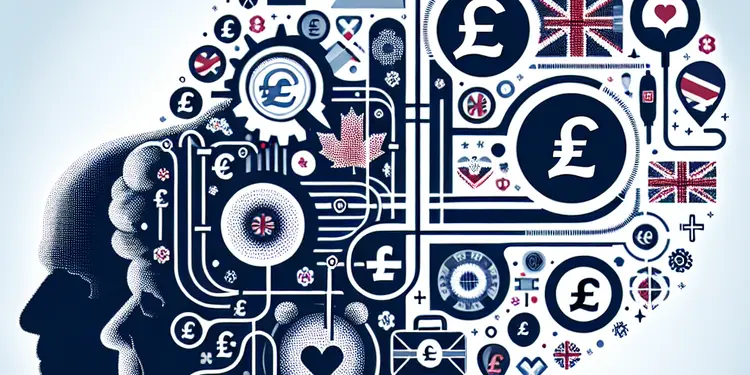
Can live-in care support individuals with dementia?
Relevance: 32%
-

Does screen time affect both sleep onset and sleep maintenance?
Relevance: 32%
-
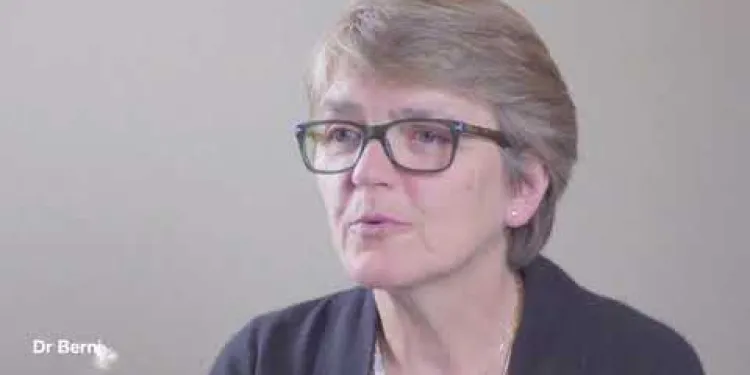
An introduction to frontotemporal dementia (FTD) (part 1/3)
Relevance: 32%
-
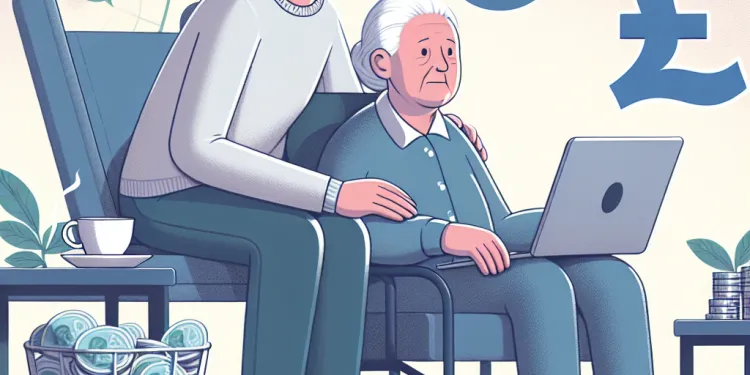
What role do carers play for those living with dementia?
Relevance: 30%
-
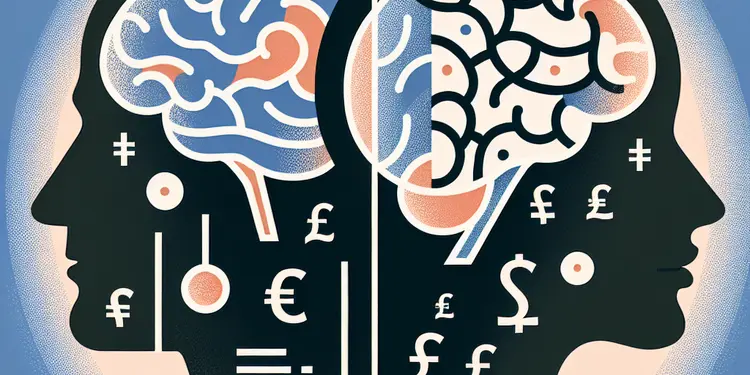
Do male and female brains age differently regarding dementia risk?
Relevance: 30%
-
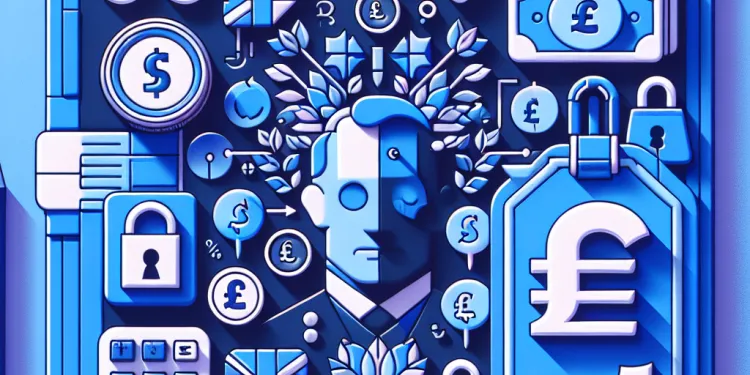
What is dementia?
Relevance: 29%
-
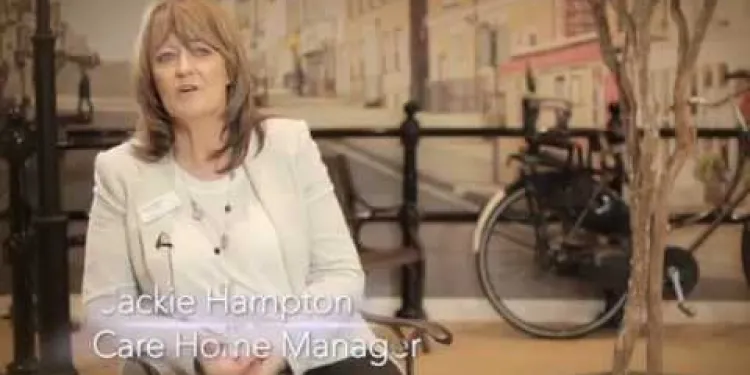
The role of care homes dedicated to caring for people living with dementia and memory loss
Relevance: 29%
-
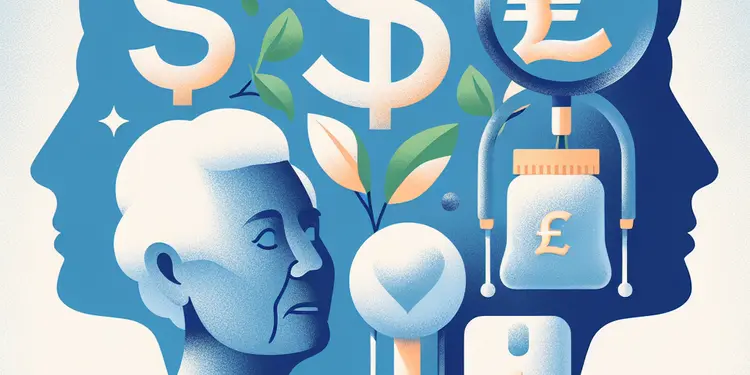
Can lifestyle changes during menopause help reduce dementia risk?
Relevance: 28%
-
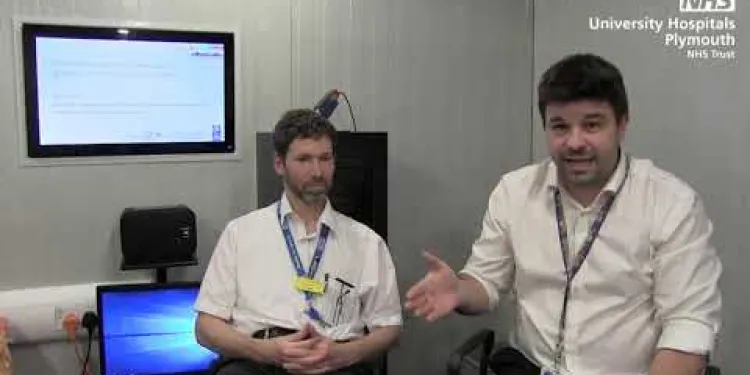
Glue Ear Pathway
Relevance: 28%
-
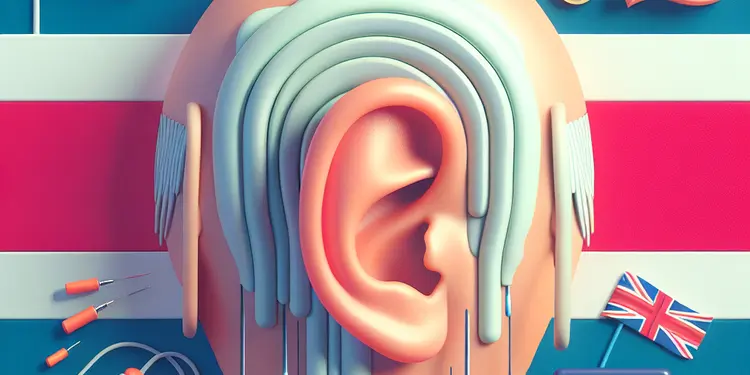
Is ringing ion the ears and tinnitus the same thing?
Relevance: 27%
-
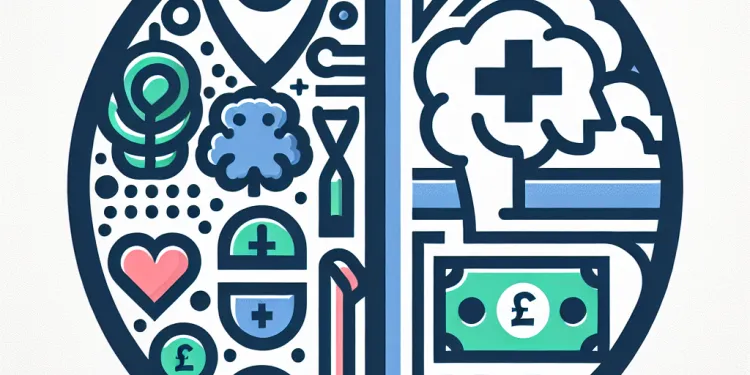
What are the common symptoms of dementia?
Relevance: 26%
-
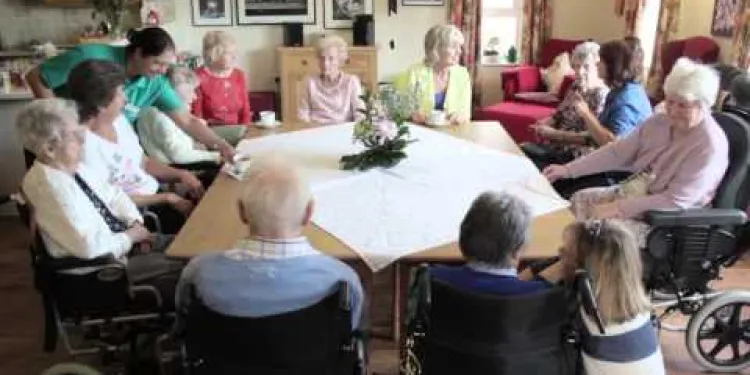
Fernhill Dedicated Dementia Care Home - a relatives perspective
Relevance: 26%
-

Living with changes in behaviour in frontotemporal dementia (FTD) (part 3/3)
Relevance: 26%
-
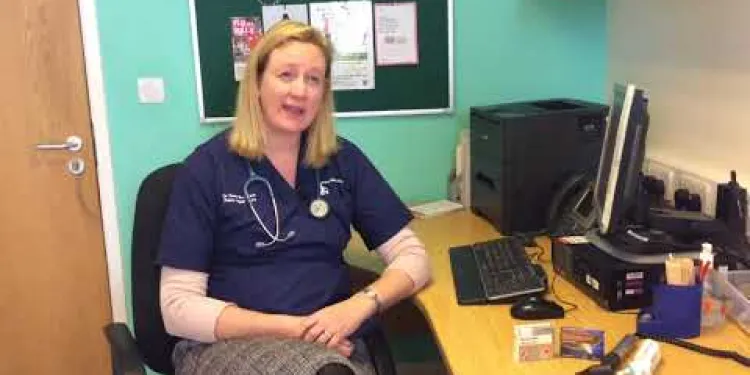
Self care: Treating ear infections
Relevance: 25%
-
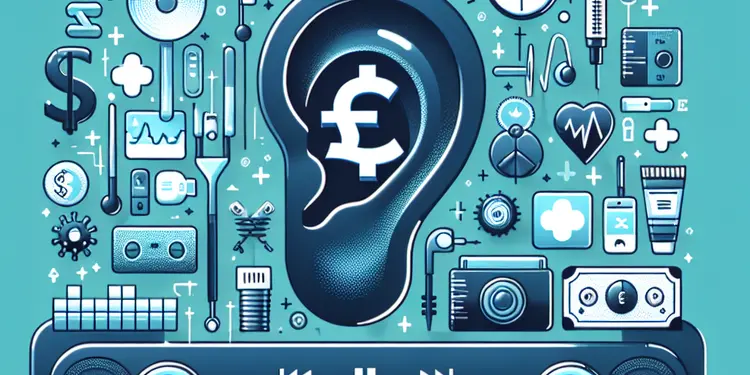
Can ear infections lead to tinnitus?
Relevance: 25%
-
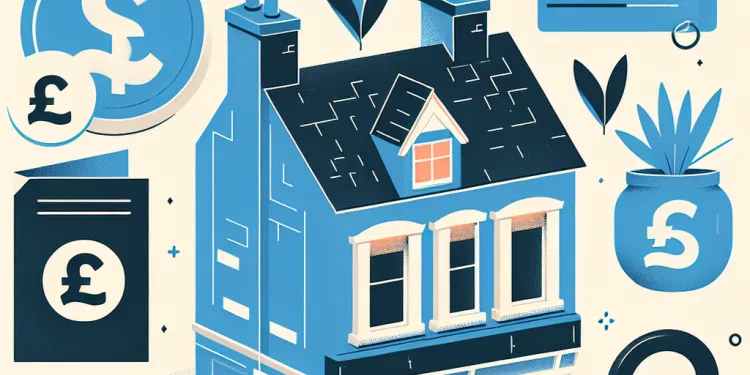
Can I end a lease agreement early?
Relevance: 25%
-
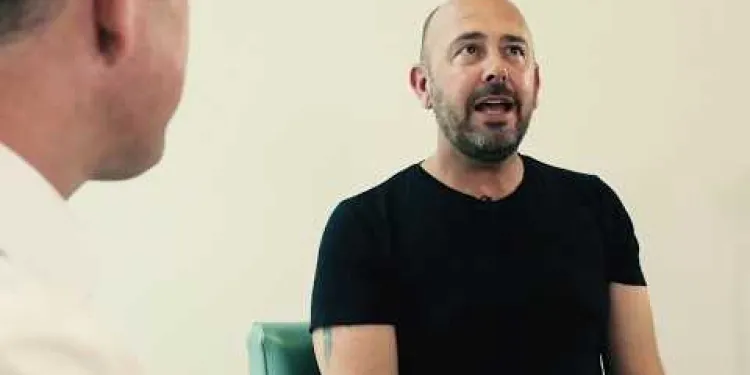
Living with early stage kidney disease
Relevance: 25%
-
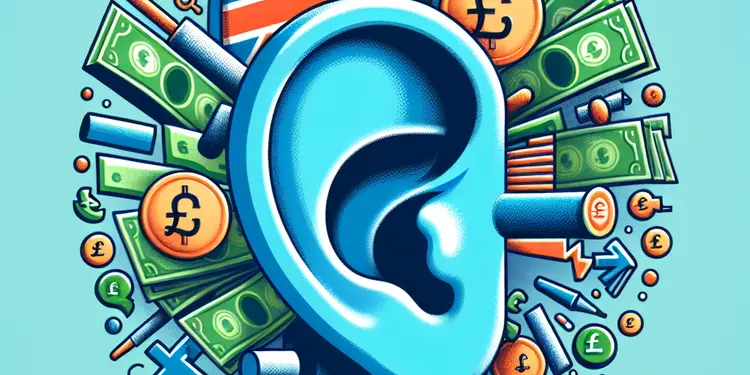
Is ringing in the ears and tinnitus the same thing?
Relevance: 24%
-

What are the signs of early cognitive decline related to menopause?
Relevance: 24%
-
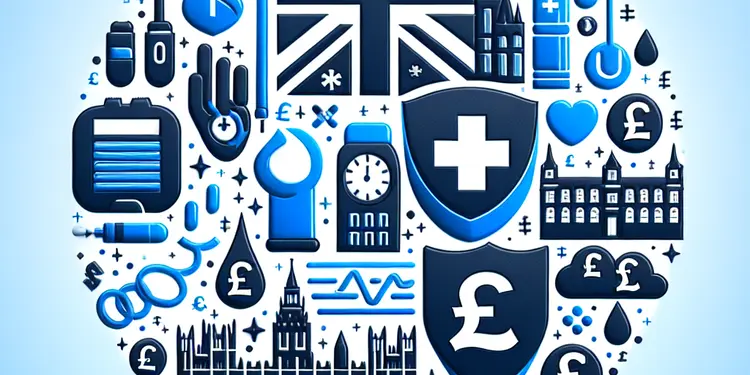
What are the benefits of early detection of type 1 diabetes?
Relevance: 24%
Early Onset Dementia
Introduction to Early Onset Dementia
Early onset dementia refers to any form of dementia that is diagnosed in individuals under the age of 65. While it is a rarer condition compared to late-onset dementia, it poses unique challenges for those affected, their families, and caregivers. Understanding the symptoms, causes, and treatment options is crucial for early intervention and management.Symptoms of Early Onset Dementia
The symptoms of early onset dementia can be similar to those of late-onset dementia but may manifest differently due to the younger age of those affected. Common symptoms include:- Memory loss that disrupts daily life
- Difficulty in planning or solving problems
- Challenges with completing familiar tasks at home or work
- Confusion with time or place
- Problems with words in speaking or writing
- Misplacing things and losing the ability to retrace steps
- Decreased or poor judgment
- Withdrawal from work or social activities
- Changes in mood and personality
Causes and Risk Factors
Early onset dementia can be caused by several types of dementia-related diseases, including:- Alzheimer's disease
- Frontotemporal dementia
- Vascular dementia
- Lewy body dementia
Diagnosis
Diagnosing early onset dementia can be challenging due to the age of the patients and the overlap with other conditions. It typically involves a range of assessments, including:- Medical history evaluation
- Physical and neurological exams
- Cognitive and neuropsychological tests
- Brain imaging (MRI or CT scans)
- Blood tests to rule out other conditions
Treatment and Support
Currently, there is no cure for dementia, including early onset forms, but there are treatments available to manage symptoms and improve the quality of life. These may include:- Medications to manage cognitive symptoms or other associated issues like depression
- Therapies (speech and language therapy, occupational therapy)
- Lifestyle changes such as regular physical activity, healthy eating, and mental stimulation
- Support networks for patients and families
Conclusion
Early onset dementia is a challenging condition, but with appropriate awareness, timely diagnosis, and supportive care, individuals can manage their symptoms effectively. In the UK, the NHS offers substantial support and resources to help navigate this condition, promoting better outcomes for patients and their families.Early Onset Dementia
What is Early Onset Dementia?
Early onset dementia is when someone under the age of 65 gets dementia. It is not as common as dementia in older people. It can be hard for the person and their family. It is important to know the signs, causes, and how to help.Signs of Early Onset Dementia
Early onset dementia has signs similar to older age dementia. Here are some common signs:- Forgetting things and having trouble in daily life
- Finding it hard to make plans or solve problems
- Struggling to do usual tasks at home or work
- Getting confused about time or place
- Having trouble with words when talking or writing
- Losing things and not remembering where they are
- Making poor decisions
- Not wanting to join work or social activities
- Changes in mood and personality
Causes and Risk Factors
Different diseases can cause early onset dementia, like:- Alzheimer's disease
- Frontotemporal dementia
- Vascular dementia
- Lewy body dementia
How is it Diagnosed?
Diagnosing early onset dementia is tricky because of the age and similar issues. Doctors use:- Medical history to understand past health
- Physical and neurological tests
- Thinking and memory tests
- Brain scans (like MRI or CT)
- Blood tests to rule out other issues
How to Manage and Support
There is no cure yet, but treatments can help manage symptoms. Support includes:- Medicines for memory and mood
- Therapies like speech and occupational therapy
- Healthy lifestyle: exercise, good food, and brain activities
- Support from friends and family
Conclusion
Early onset dementia is tough but with early help and support, people can live better. The NHS in the UK offers good support to help people and families cope with the condition.Frequently Asked Questions
What is early onset dementia?
Early onset dementia refers to dementia that occurs before the age of 65. It can manifest with similar symptoms to those of dementia in older adults but affects younger individuals.
What are the symptoms of early onset dementia?
Symptoms can include memory loss, difficulty in problem-solving, trouble with language, changes in mood and behaviour, and difficulty with daily activities.
How is early onset dementia diagnosed?
Diagnosis typically involves a combination of medical history, cognitive tests, neurological exams, and brain imaging such as MRI or CT scans. Blood tests may also be done to rule out other conditions.
What causes early onset dementia?
Several factors can cause early onset dementia, including genetic mutations, certain medical conditions (e.g., Parkinson's disease, Huntington's disease), and lifestyle factors.
Can early onset dementia be treated?
There is no cure for dementia, but treatments can help manage symptoms. These may include medications, cognitive therapies, and support for daily living.
Who is at risk for early onset dementia?
Risk factors include a family history of dementia, genetic predispositions, head injuries, and certain medical conditions.
What support is available for those with early onset dementia?
Support can come from NHS services, local councils, non-profit organizations, and dementia support groups. Family and friends also play a crucial role.
How can I support a loved one with early onset dementia?
Provide a supportive environment, help with daily tasks, encourage physical and mental activities, and ensure they attend medical appointments. Educate yourself about the condition so you can provide better care.
Is early onset dementia hereditary?
In some cases, early onset dementia can be hereditary due to genetic factors. Conditions like familial Alzheimer's disease are passed down through families.
Can lifestyle changes reduce the risk of early onset dementia?
Some lifestyle changes may help reduce risk, such as regular exercise, a healthy diet, mental stimulation, avoiding smoking, and managing cardiovascular health.
How does early onset dementia affect daily life?
It can impact daily activities such as work, social interactions, and personal care. Individuals may need assistance or adaptations to their routines.
Are there any financial supports available for those with early onset dementia?
Yes, individuals may be eligible for benefits such as Personal Independence Payment (PIP) or Attendance Allowance. Local councils may also provide financial aid for care and support services.
What are the stages of early onset dementia?
Dementia typically progresses through mild, moderate, and severe stages, each with increasing levels of cognitive and functional impairment.
Can early onset dementia affect employment?
Yes, it can impact the ability to work. Employees are encouraged to talk to their employers about adjustments or explore options like reduced hours or different roles.
Where can I find more information about early onset dementia?
You can find more information on the NHS website, through local health services, and by contacting organizations like Alzheimer's Society or Dementia UK.
What is early onset dementia?
Dementia is when the brain does not work well. It affects how we remember things, think, and talk.
Early onset dementia is when younger people have dementia. This can happen before they turn 65 years old.
To help someone with early onset dementia, you can:
- Use simple words when you talk to them.
- Show pictures to help explain things.
- Be patient and give them time to answer.
- Write things down to help them remember.
Early onset dementia means getting dementia before you are 65 years old. It can look the same as dementia in older people but happens to younger people. If you want help, you can use picture cards or ask someone to read with you.
What are the signs of dementia in young people?
Dementia can happen to young people, too. Here are some signs to look out for:
- Forgetting things more often.
- Having trouble with words.
- Getting lost in places they know.
- Finding it hard to make plans.
- Feeling confused about time or where they are.
If you notice these signs, it's good to talk to a doctor. They can help.
To support someone, you can:
- Be patient and kind.
- Help with reminders using notes or alarms.
- Break tasks into small steps.
- Encourage doing fun activities together.
Signs of the illness may be:
- Forgetting things
- Finding it hard to solve problems
- Having trouble speaking
- Feeling sad or angry
- Struggling with everyday tasks
Using pictures or simple writing can help make things easier to understand.
How do doctors find out if someone has early onset dementia?
Doctors look for signs that show someone might have early onset dementia. Here are some ways they do it:
- They ask the person and their family questions about memory and thinking.
- They might do simple tests to see how well the brain is working.
- Sometimes, they use machines like MRI to take pictures of the brain.
If you need help understanding these tests, you can ask a doctor or nurse to explain them to you. Drawing pictures or using apps on a tablet might help too.
To find out what is wrong, doctors do a few things. First, they ask questions about your health history. Then, they give you tests to check how you think and remember things. They also do special tests called neurological exams to see how your brain and nerves are working. Sometimes, they take pictures of your brain using machines like MRI or CT scans. They might also do blood tests to make sure you don't have other problems.
What makes young people get dementia?
Dementia is a sickness of the brain. It usually affects older people, but sometimes young people can get it too.
Here are some things that can cause young people to get dementia:
- Bad changes in genes. Genes are like instructions from parents that tell our bodies how to grow.
- Injuries to the brain. This can happen if someone gets hit on the head really hard.
- Illnesses that affect the brain. Some diseases, like Alzheimer's, can cause dementia.
- Other problems like lots of drinking alcohol or taking drugs.
It’s important to talk to a doctor if you or someone you know has trouble remembering things.
Using pictures or videos can help understand more about dementia. Talking with someone you trust is also a good idea.
There are different reasons why someone might get dementia early. It can be because of changes in their genes, certain illnesses (like Parkinson's disease or Huntington's disease), or the way they live their life.
Can early dementia be helped?
Dementia is a brain illness that makes it hard to think and remember. When it starts early, it is called early dementia.
Doctors can help manage dementia with medicine and other treatments. While it may not be able to completely cure it, these treatments can make it easier to live with.
It's important to talk to doctors and nurses, so they can help find the best care. Support groups, therapy, and activities that help the brain stay active can also be good.
There is no cure for dementia, but there are ways to help with the symptoms. These can include medicine, brain exercises, and help with everyday tasks.
Who can get early onset dementia?
Some people can get dementia when they are younger than 65 years old. This is called early onset dementia. Here is who might be more at risk:
- People who have family members with dementia.
- People with certain health problems like Down syndrome.
- If you are worried, talk to a doctor or a nurse. They can help.
Using pictures or charts can help understand more about dementia. You can also ask someone you trust to help explain.
Things that can make dementia more likely are having family members with dementia, certain genes, getting hit on the head, and some health problems.
What help can people with early onset dementia get?
If someone gets dementia before they are old, it is called early onset dementia. Here are some ways to get help:
- Doctor’s Advice: Talk to a doctor. They can tell you what to do and give medicine if needed.
- Support Groups: Join a group where people can share how they feel and help each other.
- Memory Aids: Use tools like calendars, alarms, and notes to remember things.
- Activities: Do fun activities like puzzles and games to keep the brain active.
- Family and Friends: Ask family and friends for help and support.
Remember, it's okay to ask for help. You are not alone.
Help can come from the NHS, local councils, charities, and dementia support groups. Family and friends are also very important.
How can I help someone I care about who has early dementia?
Be Patient: Understand that they might forget things or get confused.
Talk Clearly: Use simple words and speak slowly so they can understand you better.
Routines Help: Try to do things the same way every day. This makes it easier for them to know what to expect.
Stay Calm: If they get upset, stay calm and help them feel safe.
Fun Activities: Do things together that they enjoy, like listening to music or looking at pictures.
Write Things Down: Make lists or notes to help them remember important things.
Ask for Help: It's okay to ask a doctor or other experts for advice and support.
Make a safe and happy place. Help with things they do every day. Encourage them to do exercises and activities that use their mind. Make sure they go to the doctor. Learn about their condition so you can help them better.
Can you get early onset dementia from your family?
Early onset dementia means memory problems that start when you are younger.
Sometimes, early onset dementia can run in families. This means it can be passed from parents to children through genes.
If someone in your family has early onset dementia, it does not mean you will definitely get it too. But the risk might be a bit higher.
If you are worried, talk to a doctor. They can give you advice and help.
Using pictures and simple words can help understand better.
Sometimes, people can get dementia early because of genes. This means it can run in families. For example, a type of Alzheimer's can be passed down from parents to children.
If you need help understanding, you can:
- Ask someone to explain it to you.
- Listen to the words read out loud.
- Use pictures to help you understand.
Can changing how we live help prevent getting dementia early?
Changing some habits might help keep our brains healthy.
Here are some tips:
- Eat healthy foods like fruits and vegetables.
- Exercise regularly, like walking or playing a sport.
- Get enough sleep every night.
- Keep your brain active with puzzles or reading.
- Stay connected with friends and family.
- Try to feel happy and talk about your feelings.
Ask for help from a doctor or a nurse if you have questions.
There are some things you can do to help stay healthy. Try to exercise often, eat good food, keep your mind busy, don't smoke, and take care of your heart.
How does early onset dementia affect daily life?
Dementia is a sickness that changes how the brain works. Early onset dementia happens to younger people. It can make daily life hard.
Here are some ways it can affect daily life:
- Forgetting things easily
- Getting confused about places and people
- Finding it hard to talk or understand words
- Feeling sad or worried a lot
To help with these problems, people can try:
- Using reminders like notes or alarms
- Asking family and friends for help
- Using simple words when talking
- Doing fun activities to feel better
It's important to see a doctor for help and support.
This can make things like work, talking with friends, and taking care of yourself harder. People might need some help or may need to change how they do things every day.
Can people with early onset dementia get money help?
If you have early onset dementia, you might be able to get money help. Here’s what you can do:
- Talk to a social worker. They can tell you where to get help.
- Look for government programs that give money to people who need it.
- Ask your doctor. They can give you advice on getting help.
- Use the internet to find organizations that help people with dementia.
If you find reading hard, ask someone you trust to help you read and fill out forms. They can also help you use tools like text-to-speech on a computer or smartphone.
Yes, you might get help like Personal Independence Payment (PIP) or Attendance Allowance. Local councils might also give you money for care and support.
What happens when dementia starts early?
Dementia is when the brain doesn't work like it used to. Some people get it when they are younger.
Here are the steps of dementia:
- First Step: You might forget things. It can be hard to remember names and dates.
- Second Step: It gets harder to talk with friends. You might feel confused.
- Third Step: Doing everyday things, like getting dressed, can be tricky.
Here are some tools to help:
- Use a Calendar: Write down important things to remember.
- Label Things at Home: Put names on items to help find them easily.
- Talk to a Helper: Ask someone you trust to help you.
Dementia gets worse over time. It usually goes through three stages: mild, moderate, and severe. Each stage makes it harder for the person to think and do everyday things.
If you know someone with dementia, it helps to be patient and kind. Try using simple words and sentences when you talk to them. Pictures and gestures can also help them understand better.
Can getting dementia early make it hard to work?
It might be hard to keep working if you get dementia early. Dementia can make remembering things and talking to people difficult.
If you or someone you know has early dementia, it's important to ask for help.
You can talk to your doctor. They can help you understand what is happening. Maybe your job can change things to help you keep working.
You can use calendars or reminders to help remember things. Writing notes can also be helpful.
Yes, it can make working harder. Workers should talk to their bosses about changes or look at things like working fewer hours or doing a different job.
Where can I find more information about early onset dementia?
Would you like to know more about early onset dementia?
You can:
- Look at websites about health. They have lots of good information. Some examples are NHS or Alzheimer's Society.
- Visit a library to find books about dementia.
- Ask a doctor or nurse. They know a lot and can help you.
- Talk to support groups. They understand and can give advice.
These places can help you learn more in an easy way!
You can get more help and information from the NHS website. You can also talk to local health services. Alzheimer's Society and Dementia UK are organizations that can help too.
Useful Links
This website offers general information and is not a substitute for professional advice.
Always seek guidance from qualified professionals.
If you have any medical concerns or need urgent help, contact a healthcare professional or emergency services immediately.
- Ergsy carfully checks the information in the videos we provide here.
- Videos shown by Youtube after a video has completed, have NOT been reviewed by ERGSY.
- To view, click the arrow in centre of video.
- Most of the videos you find here will have subtitles and/or closed captions available.
- You may need to turn these on, and choose your preferred language.
- Go to the video you'd like to watch.
- If closed captions (CC) are available, settings will be visible on the bottom right of the video player.
- To turn on Captions, click settings .
- To turn off Captions, click settings again.
More Items From Ergsy search
-

Early onset dementia | NHS
Relevance: 100%
-

Is the age of menopause onset related to dementia risk?
Relevance: 69%
-

What symptoms can overlap between menopause and the early stages of dementia?
Relevance: 49%
-

What are the links between menopause and dementia?
Relevance: 42%
-

Is there a cure for dementia?
Relevance: 41%
-

What is dementia?
Relevance: 40%
-

How is dementia diagnosed?
Relevance: 39%
-

Is there scientific evidence linking menopause to dementia?
Relevance: 39%
-

How does dementia progress over time?
Relevance: 38%
-

Do genetics play a role in dementia risk post-menopause?
Relevance: 38%
-

Can dementia affect younger people?
Relevance: 37%
-

Dementia by Dr Alex Kakoullis, Coventry and Warwickshire Partnership NHS Trust
Relevance: 36%
-

How does menopause potentially affect dementia risk?
Relevance: 35%
-

Living with dementia | NHS
Relevance: 35%
-

Are there specific types of dementia linked to menopause?
Relevance: 35%
-

Can hormone replacement therapy (HRT) impact dementia risk?
Relevance: 34%
-

Dementia Care at Colten Care
Relevance: 33%
-

How common is it for women to develop dementia after menopause?
Relevance: 33%
-

What further research is needed about menopause and dementia?
Relevance: 33%
-

Are there any support groups for people with dementia in the UK?
Relevance: 33%
-

Can live-in care support individuals with dementia?
Relevance: 32%
-

Does screen time affect both sleep onset and sleep maintenance?
Relevance: 32%
-

An introduction to frontotemporal dementia (FTD) (part 1/3)
Relevance: 32%
-

What role do carers play for those living with dementia?
Relevance: 30%
-

Do male and female brains age differently regarding dementia risk?
Relevance: 30%
-

What is dementia?
Relevance: 29%
-

The role of care homes dedicated to caring for people living with dementia and memory loss
Relevance: 29%
-

Can lifestyle changes during menopause help reduce dementia risk?
Relevance: 28%
-

Glue Ear Pathway
Relevance: 28%
-

Is ringing ion the ears and tinnitus the same thing?
Relevance: 27%
-

What are the common symptoms of dementia?
Relevance: 26%
-

Fernhill Dedicated Dementia Care Home - a relatives perspective
Relevance: 26%
-

Living with changes in behaviour in frontotemporal dementia (FTD) (part 3/3)
Relevance: 26%
-

Self care: Treating ear infections
Relevance: 25%
-

Can ear infections lead to tinnitus?
Relevance: 25%
-

Can I end a lease agreement early?
Relevance: 25%
-

Living with early stage kidney disease
Relevance: 25%
-

Is ringing in the ears and tinnitus the same thing?
Relevance: 24%
-

What are the signs of early cognitive decline related to menopause?
Relevance: 24%
-

What are the benefits of early detection of type 1 diabetes?
Relevance: 24%


